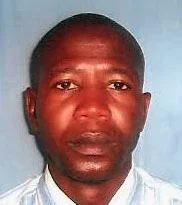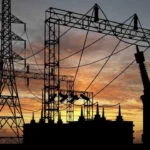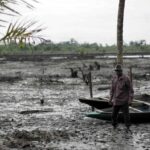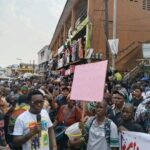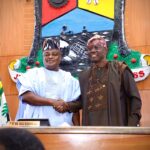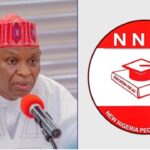Afolabi Gambari
In a couple of days, precisely on October 1, Nigeria would have attained 65 years of independence, and it would be another milestone for Nigerians at home and around the world. For millions of Nigerians at home, however, it will be a day of reckoning as they continue to search for a future that would guarantee their well-being, wholly different from the present where the system has so pulverized them that they are left with no choice but to live by the day, if not by the hour, in an increasingly pathetic circumstance.
It’s no longer different strokes for different people, as it were, but only one stroke for everyone.
But those for whom the bell tolls at this dire time are in greater numbers, and their rank grows daily. Among the lot, curiously, are the elite who usually would play the ostrich in the recent past but have now willfully joined the wailing crowd. Yet, it can still be easily determined where the loud groan would come from; certainly not from Nigeria’s former military rulers, who have been variously accused of bequeathing a nation that has since sunk into the abyss. About this time last year, out of the blue, Nigeria’s longest serving leader as a military and civilian, Chief Olusegun Obasanjo, popped up in Minna, Niger State to visit another former leader, General Ibrahim Babangida. Although media reports described Obasanjo’s visit as casual and ostensibly to belatedly greet Babangida on his 83rd birthday, which was marked on August 17, the reports still said both leaders discussed “state of the nation” and were later joined by another former military leader, General Abdulsalami Abubakar, who, like Babangida, is resident in Minna. Details of the discussion were not disclosed. But one has to be practically unconscious these days to be unaware of what such details would be.
Two days later, General Abubakar hosted a delegation of Campaign for Democracy (CD) in his Minna home, where he called on the Federal Government to “remedy the present hardship confronting Nigerians”. According to him, “everybody is crying because of this hardship, and it seems to be getting out of control. People cannot afford three square meals, the issue of transportation, the hike in fuel price, the hike in school fees for the children and the lack of funds in the pocket is making life difficult for everybody.”
As if the ex-leader was out to pre-empt the incumbent Bola Tinubu administration, he also said: “As far as I am concerned, giving palliatives to the people is not the answer to the high prices of food and other items across the country.” For a government that appeared to be at sea with regard to finding a lasting solution to the challenges confronting the masses of Nigeria, the general had clearly stepped on the cobra’s tail and was ready for a fight.
The CD delegation, one of the arrowheads of the planned October 1 2024, protest, apparently visited Abubakar to seek his consent for their looming enterprise. And they got it in full. “For God’s sake, when you go out to protest, make sure you do it very peacefully,” he told his audience, reminiscent of the coup era when the masterminds would ask the executioners to “go out there and do your job but there must be no bloodshed, please”. The delegation members would have scarcely wondered what their host stood to gain by offering such anti-establishment advice.
On same day in Abuja, seat of power, a former chief of army staff in the era when Obasanjo was a military leader, General Theophilus Yakubu Danjuma, weighed in with an order on the military hierarchy to “put an end to the killings across the country without delay”. Danjuma occupied no official military position at the time and he should know better that only a superior could order a subordinate in the army and such order he handed down went against the norm, especially when a commander-in-chief is already in charge. But he was adamant: “The military has no excuses for not restoring peace in the many troubled areas of the nation.” He also said: “Insecurity remains Nigeria’s greatest challenge and it must be addressed. Those of you who are still serving have no excuses.” It has seemed either that general Danjuma had not concerned himself with the affairs of the country, especially since 2014 when insecurity in Nigeria had assumed a monstrous dimension, or he had been away to some place and just returned home – hence he was acting alien.
The quartet of Obasanjo, Babangida, Abubakar and Danjuma enjoy the privilege of easy access to the seat of power in Abuja, even at very short notice, to meet with the sitting president, express their grievances, if any, and expect to be granted a response befitting their elevated status. Why they chose to go public by being populist rather than exploit the aforementioned access remained curious, if not baffling. What may not be baffling, however, is that the quartet have been renowned to pursue personal agenda with which they sought relevance in a society where many are looking beyond them in the search for solutions that persistently plague the country. It may just well be that the personal agenda that they pursue is being threatened in the new dispensation. So, the quest to use “suffering people” as a shield has simply become Hobson’s choice.
By October 1 2025 only days away, pro-democracy groups have no plans to protest, even though there are sufficient grounds for a protest. At any rate, the aforementioned quartet has yet to make similar statements as they did last year. But even if they do, it can be certain that they would not belong on the side of the masses any more than they would use the masses as cannon fodders as they would most definitely have a whole lot to protect should the Independence Day suddenly turns out as a day of reckoning for all the individuals and groups that have for donkey’s years expended their utmost resolve to arrest the development of Nigeria.

